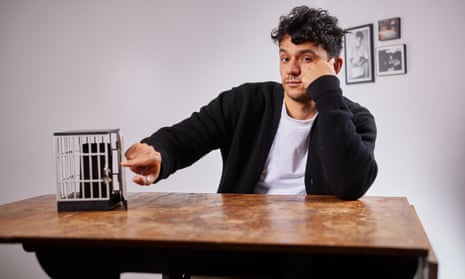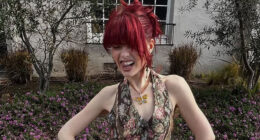‘I don’t like my relationship with my phone – and I want to change it’: the thing I’ll do differently in 2023

I’ve already disabled my Twitter account and want to learn to stop scrolling and be more present for my family
The other night I was bathing my 15-month-old son. He grabbed the shampoo bottles, the rubber duck and a hairbrush, and sank them in the bathwater. He squealed, delighting himself in some private game. I turned away, picked up my phone, refreshed my email and checked Instagram. Then I scrolled while my son played in the bath beside me, thinking he didn’t want to be observed. When he noticed me on my phone, looking away from him, his smile vanished. He whined and teared up. I immediately put the phone down, cooing: “I’m sorry, baby. I’m sorry.” But he cried unforgivingly.
My wife, hearing the commotion, came into the bathroom, picked him up in a towel and carried him into his bedroom. I followed behind, still apologising. He scowled at me. “He’s upset because you weren’t paying attention,” my wife said. I’m sorry, baby.
Why couldn’t I be present with my son? What was I looking for on my phone?
I don’t think I have clearly established the boundaries between myself and my phone, or looked closely enough at the specific unthinking ways the phone is taking me away from connecting with the people that matter. My son relies on me to be there for him; he looks to me as a model of appropriate behaviour and to be present for him.
Shaming myself, or falling on negative self-talk, is not what I want to do here: I want to acknowledge that I don’t like the relationship I have with my phone and I want it to change.
Yes, I know, me and everyone else – but what am I actually doing about it and how deeply am I interrogating my impulse? I know that some incredibly smart people came up with the technology and our addiction is an intended effect, but I don’t want to deliver a critique of the tech industry. I just want to articulate the emotional impact that scrolling has had on me.
READ RELATED: I got a two-tone purple bike, pale violet and aubergine. God, I felt cool – the Christmas present I’ll never forget
I have begun to talk a lot more about my social media usage in therapy. My counsellor wonders if I’m partly checking out as a coping mechanism, because of the exhaustion of being deaf in the hearing world, straining to hear all day. I fall back on scrolling because it feels like a sedative and it relaxes me, while also keeping me numbingly alert on the screen, where all the content I passively consume is subtitled. It seems most of us get into a social media slump when we’re tired and zoning out.
This makes sense, but can only be part of the story. Yes, we’re collectively glued to our phones, “dulling the most alive parts of ourselves”, as Jenny Odell describes it in her book How To Do Nothing: Resisting The Attention Economy. But, now I’m trying to unpick my relationship with social media with a healthcare professional, I wonder what parts of myself I might discover or rediscover without social media getting in the way?
This evening, I bathed my son while trying not to impulsively switch off and turn away – I’m trying to stay available, to witness him quietly playing. I felt the urge to check my phone and rode out the feeling and was glad to have created a moment with him. He has nine teeth and light hazelnut hair. His curls fall not far from his eyes, which are his mother’s eyes.
I hope to push through the precipice of more of those feelings next year. I want to become more intentional with my attention, and I’ve already disabled my Twitter account. Most people I have spoken to who are still on it claim to be there to “watch it burn”, but one week away and my screen time has dropped, I’ve got more reading done, and I’m keeping the phone out of the bathroom and bedroom. I get a little private kick out of achieving this.
Almost every conversation I have with people about social media seems generalised and cliched, that they have been “doom scrolling” and “getting dumber every minute they spend on their phones”.
I know it’s an obvious observation but there are things that need to be said repeatedly, messages that deserve the ubiquity of prayers and Stevie Wonder songs. The message is: “Are you being mindful?”
In this way, I am not just thinking of what I model for my son, but what he models for me, if I notice it, if I look closer, to see how gently present he is when he is playing. I want to keep him safe in my gaze. I want to be conscious of the part of me that is refusing to be immersed and alive in unplugged ways, so I can create moments that deepen our breath and connect us more intimately than air.
Source: Health & wellbeing | The Guardian





